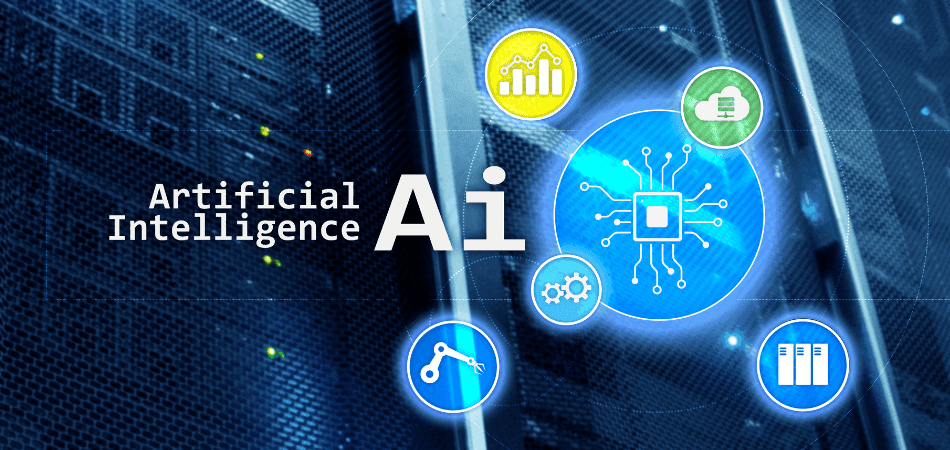Why AI Will Not Replace Human Inspections of IDD Group Homes

Jason Willetts

Artificial intelligence (AI) has revolutionized numerous industries, automating tasks, improving efficiency, and reducing human error. From healthcare to manufacturing, AI-powered tools and robotics have streamlined operations, making once time-consuming tasks more manageable. However, despite these impressive advancements, AI will not replace human inspections of Intellectual and Developmental Disabilities (IDD) group homes. Inspections in these settings require a unique blend of human judgment, empathy, adaptability, and accountability that AI cannot replicate.
The Critical Role of Human Judgment and Experience
AI excels at processing large amounts of structured data quickly, but inspections of IDD group homes demand more than just data analysis. Inspectors must have a deep understanding of the unique needs of residents, behavioral patterns, and the complex regulatory landscape governing these facilities. A human inspector can interpret body language, recognize subtle signs of distress or neglect, and make nuanced decisions that AI cannot. Experience and critical thinking play a vital role in assessing both compliance and the overall well-being of residents—factors that AI struggles to fully comprehend.
Navigating Unpredictable and Complex Scenarios
One of AI's biggest weaknesses is its reliance on structured data and predictable patterns. IDD group homes, however, operate in highly dynamic environments where each resident has unique needs, behaviors, and communication styles. Inspections often involve unexpected situations, such as emergency response assessments, sudden behavioral changes in residents, or unique environmental challenges. Human inspectors possess the adaptability to handle these unpredictable scenarios, responding with compassion, intuition, and real-time problem-solving that AI lacks.
The Necessity of Physical Interaction and Sensory Assessment
While AI-powered drones and sensors can capture images and analyze surface-level data, they lack the sensory capabilities required for a comprehensive inspection. Inspectors must physically assess accessibility, cleanliness, safety hazards, and overall living conditions, relying on touch, smell, and auditory cues to detect potential issues. For instance, an inspector may notice an unusual odor that signals poor hygiene or spoiled food—details that AI cannot perceive. Hands-on evaluations remain essential for ensuring a safe and high-quality living environment for IDD residents.

Medication Management and Compliance Oversight
Medication administration is a crucial aspect of IDD group home inspections, requiring careful oversight to ensure compliance with individualized care plans and legal regulations. Human inspectors verify that medications are properly stored, accurately labeled, and administered according to prescribed regimens. They also evaluate staff competency in handling medications and engage in real-time discussions with caregivers about potential concerns. AI may assist in tracking medication logs, but it cannot substitute for human intervention in verifying adherence, understanding complex drug interactions, or addressing medication-related concerns with caregivers and residents.
Ethical and Legal Considerations in IDD Group Home Inspections
Inspections of IDD group homes carry significant ethical and legal responsibilities. The well-being of vulnerable individuals depends on thorough evaluations conducted by professionals who can be held accountable for their assessments. While AI can assist in data collection, it lacks the ethical reasoning and moral responsibility that human inspectors bring to the process. In critical situations—such as identifying abuse, neglect, or policy violations—AI cannot replace the human ability to make judgment calls, provide legal testimony, or advocate for residents' rights.

The Limitations and Potential Risks of AI in Inspections
AI, while powerful, is not infallible. AI models are only as good as the data they are trained on, and they can suffer from biases, misinterpretations, and errors. In an IDD group home setting, an AI system might misdiagnose a safety hazard or overlook a subtle sign of neglect. A false negative in an AI-generated report could result in serious harm to residents. The presence of human inspectors serves as a critical safeguard, ensuring that AI-generated insights are verified and supplemented with human expertise.
Building Trust and Confidence in the Inspection Process
Trust is an essential element of IDD group home inspections. Families, caregivers, and regulatory agencies need the reassurance that a trained human professional has personally evaluated the facility, interacted with residents, and made informed judgments. AI lacks the ability to build relationships, demonstrate empathy, or inspire confidence in families who entrust their loved ones to these facilities. The human touch remains indispensable in fostering trust and ensuring accountability in the inspection process.
AI as a Valuable Tool, Not a Replacement
Rather than replacing human inspectors, AI should be seen as a tool to enhance the efficiency of inspections. AI can assist by automating documentation, flagging potential issues, and analyzing historical data trends. For example, AI-powered software can track maintenance schedules, detect anomalies in facility operations, and streamline compliance reporting. However, AI should complement—not replace—human inspectors, who bring the critical thinking, ethical judgment, and interpersonal skills necessary for comprehensive evaluations.
The Future of Inspections is a Hybrid Approach
A well-designed inspection process is a fundamental component of an IDD group home's success. By setting clear objectives, identifying critical focus areas, implementing a standardized checklist, conducting both scheduled and surprise inspections, and training staff on inspection preparedness, administrators can proactively address issues, maintain compliance, and provide the highest quality of care for residents. Prioritizing regular, structured inspections fosters a safe, supportive, and well-managed environment, reinforcing the facility's mission of serving individuals with intellectual and developmental disabilities. When inspections are integrated into the overall management strategy of a group home, they become a powerful tool for achieving operational excellence and ensuring the well-being of all residents.
Behind the Business: Willetts Tech
Jason Willetts is the founder and president of Willetts Technology, which has been providing reliable technology solutions to human service organizations since 1997. Every day, we empower thousands of human service workers with dependable products and friendly, responsive support—helping them streamline operations, excel in their work, and make a lasting impact on the communities they serve. With a strong foundation in business development, project management, and team building, we ensure that technology works seamlessly alongside human expertise to drive meaningful results. At Willetts Technology, we're more than a provider—we're a trusted partner in your mission to improve lives.